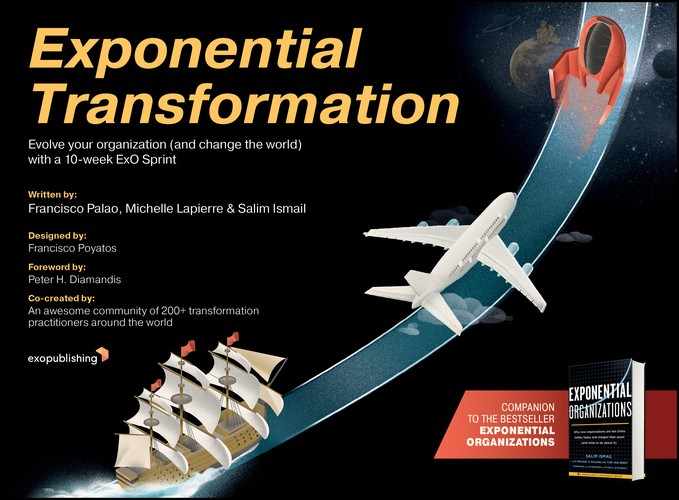What Is an Exponential Organization?
Any company designed for success in the 20th century is doomed to failure in the 21st.
– David Rose
A new breed of business proven to be capable of unlocking the abundance provided by emerging technologies and readily adaptable to a rapidly changing business environment has emerged. These companies have been coined Exponential Organizations for their ability to grow 10 times (10x) as fast as traditional organizations.
Salim Ismail's best-selling Exponential Organizations launched the global ExO movement. In it, he offers the following definition:
An Exponential Organization (ExO) is one whose impact (or output) is disproportionately large—at least 10x larger—compared to its peers because of the use of new organization techniques that leverage accelerating technologies.
After studying ExOs for several years, Ismail distilled their characteristics into 11 components, which today comprise the ExO model. This model provides a structure for understanding how to recognize and adapt to the ExO age and ultimately become a leader in it.
What does an Exponential Organization look like? Classic examples include Amazon, Google, Airbnb, Uber, Facebook, and Skype. ExOs are transforming industries across the board, from manufacturing to retail to services—even philanthropy.
The ExO model allows organizations to adapt to the changes brought about by the Fourth Industrial Revolution, since ExOs are built to capitalize on accelerating technologies. Exponential technologies enable abundance, and ExOs are built to take advantage of that abundance.
The ExO model builds upon an iconic line of innovation tools and frameworks.
- Blue Ocean Strategy: How to Create Uncontested Market Space and Make Competition Irrelevant, by Renée Mauborgne and W. Chan Kim, focuses on product innovation and creating uncontested markets.
- Steve Blank's The Startup Owner's Manual: The Step-by-Step Guide for Building a Great Company introduces the Customer Development process and advocates “getting out of the building” to accelerate learning.
- With The Lean Startup: How Today's Entrepreneurs Use Continuous Innovation to Create Radically Successful Businesses, Eric Ries launched an influential movement for continuous innovation through rapid experimentation.
- Alexander Osterwalder's Business Model Generation: A Handbook for Visionaries, Game Changers, and Challengers provides a shared language and process for defining and shaping business models.
The ExO model wasn't created as a new concept to try out. It was created to provide a framework for what is already being done—and working supremely well—in the world today. It's the right approach for the Fourth Industrial Revolution, as it builds on the best of previous methodologies and adds elements to address exponential technologies and their 6D implications. The ExO framework is the basis of this book and the methodology it presents.
We are experiencing an exponential rate of change in every facet of our organizations today, far beyond any digital transformation of years past. Our answer to the rush of change is to harness the power of change itself. To do so, you must transform your linear organization into an Exponential Organization.
Where do you start? This is the purpose of Exponential Transformation: to provide a series of assignments, direction, support, and guidance for organizational transformation that will deliver exponential results.

